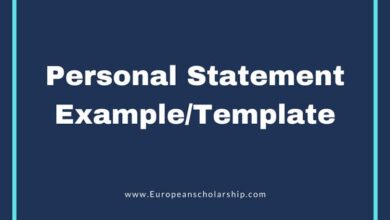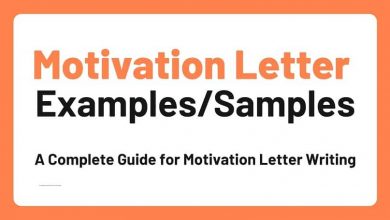How to write a Research Paper | USE Full Tips
Useful Tips for Writing an Effective Research Paper

A research paper is an article of scholarly writing focused on in-depth, independent research that offers a review, explanation, and argument. Moreover, study papers are similar to academic texts, but they are typically longer and more comprehensive activities designed to test not only your writing abilities but also your educational research abilities.
An academic research paper is an academic written work that offers analysis, interpretation, and arguments derived from extensive independent study.
Research papers are similar to academic papers; however, they’re usually longer and more involved projects designed to assess your writing ability as well as proficiency in conducting scholarly research. When conducting a research paper, writers need to demonstrate extensive knowledge of both the topic and source materials as well as present original contributions that contribute something new or interesting to the discussion.
Step-by-step instructions guide readers through each stage of the writing process, beginning with understanding your task to ensure an impressive final draft.
Steps and Useful Tips for Writing a Research Paper
Table of Contents
Following are the steps of writing a research paper:
#1 Comprehend the objective of the Research Paper
Start by understanding the assignment task sheet thoroughly before you initiate:
Read it carefully, and look for something unclear that you may need to explain to your instructor. As well as identify the assignment target, goal, requirements of length, formatting, and method of presentation. Along with this, create a bulleted list of key points, go back and cross the finished things when you go off. Also, recognize the timeline and word count thoroughly: be practical and schedule enough time to investigate, compose and revise.
#2 Select the subject of a Research Paper
There are several ways to create a research paper concept, from brainstorming with pen and paper to talking to a classmate or professor about it. Once you have a wide subject field, narrow it down to pick a topic that interests you, meets your assignment requirements, and research is possible. The goal for thoughts that are both original and particular.
#3 Perform preliminary study
Note any discussions that seem relevant to the topic, and try to find a problem that you can concentrate on in your article. To assure you do not miss anything conspicuous, use a range of outlets, including reports, textbooks, and reputable websites.
#4 Create a Statement of Thesis
A thesis statement is a document of your core point, which determines your paper’s intent and role. Along with this, comprehensive, controversial, and consistent should be the thesis argument. That implies that your statement should be briefly outlined in a sentence or two; make a claim requiring more proof or analysis; and make a coherent point relating to each part of the article. When you do more reading, you will probably rewrite and refine the thesis statement. So it will act as a reference in the process of writing.
#5 Build the outline of a Research Paper
A research paper layout is simply a list of the main subjects, claims, and facts you want to use, split into parts with headings so that you know approximately what the paper would look like before you start writing.
#6 Write the first version of the paper for analysis
At this step, your goals are as follows;
Maintaining momentum forwards-write now, perfect later. Also pay attention to the simple organization of paragraphs and sentences and to the logical ordering, which will aid when you come to the second draught. Further, articulate your thoughts as simply as you can, so you know what you were trying to mean when you returned to the text. Moreover, by writing the introduction, you don’t need to start. Start where you think it’s most natural. Do not delete large sections of text. You never know if it could be important later.
Framework of paragraph
The fundamental building blocks of research papers are paragraphs. Each Paragraph should concentrate on a single claim or concept that helps to develop the paper’s overall statement or intent.
Citation of sources
To avoid accidental copyright infringement, it is also necessary to keep track of citations at this point. Be sure to take note of where the information comes from any time you use a source.
Write your overview
Three research questions should be dealt with in the research paper introduction. What, why, and how? The reader should understand what the paper is about after finishing the introduction. Whether it is worth reading, and how the claims will be built.
What? Be clear about the paper’s topic, introduce the context, and identify keywords or concepts.
About why? This is the part of the presentation that is most important, but also the most complicated. Try to answer the following questions in a brief way: What new material or perspective are you offering? What significant problems does your essay help to describe or answer?
How? The outline should provide a “map” of what will be covered in order to let the audience understand what to expect from the rest of the article, briefly introducing the main elements of the paper in sequential sequence.
Write a persuasive body of text
How to arrange the information provided in the paper is the main challenge faced by most authors, which is one reason why an outline is so useful. Also confirm the subject sentences against the argument of the thesis; Subject sentences, for similarities and logical ordering, against one another. Moreover, each statement is contrary to the subject statement of that section. Be mindful of paragraphs that seem to cover items that are the same.
Write the conclusion of the Research paper
The result of the research paper is intended to help the reader get out of the argument of the paper, giving them a sense of finality. New reasons or critical knowledge should not be provided,
Your conclusion of a research paper should help your audience navigate its arguments, giving them the sense that they’ve completed it successfully.
After reviewing your document in detail, trace its development and emphasize how its various pieces connect back together to support your thesis statement. Your paper should create a sense of closure by showing readers that all their concerns have been resolved successfully.
As is also often the case, discussing the general implications of an argument requires looking beyond its specific implications and outlining what the essay offers prospective students on its subject as well as providing solutions or providing suggestions for any lingering queries not directly resolved by its arguments.
The second draft
When it comes to the second volume, there are four primary considerations.
1-Check how the paper’s vision lines up with the first draught and, more importantly, that the challenge is still addressed by the paper.
2- Identify any conclusions that might require (more substantial) explanation, keeping first and foremost in mind the viewpoint of your reader.
3- Be open to the thoughts being rearranged.
4- You should cut them out or compress them if you notice the old things do not suit as well as you expected.
- The method of revision.
During the review and formatting process, the aim is to ensure that all the required tasks have been accomplished and that the document is as well-articulated as possible.
- Economic Problem concerns.
Confirm that any assignment listed in your assignment sheet is completed by your paper. Check for logical paragraph organization and flow. Also verify paragraphs against the assertion of the introduction and thesis. Information should fine-grained. Moreover, verify the content of each paragraph and ensure that nothing is irrelevant or un necessary.
Read about Research Proposal-Tips for Writing a Powerful Research Proposal



